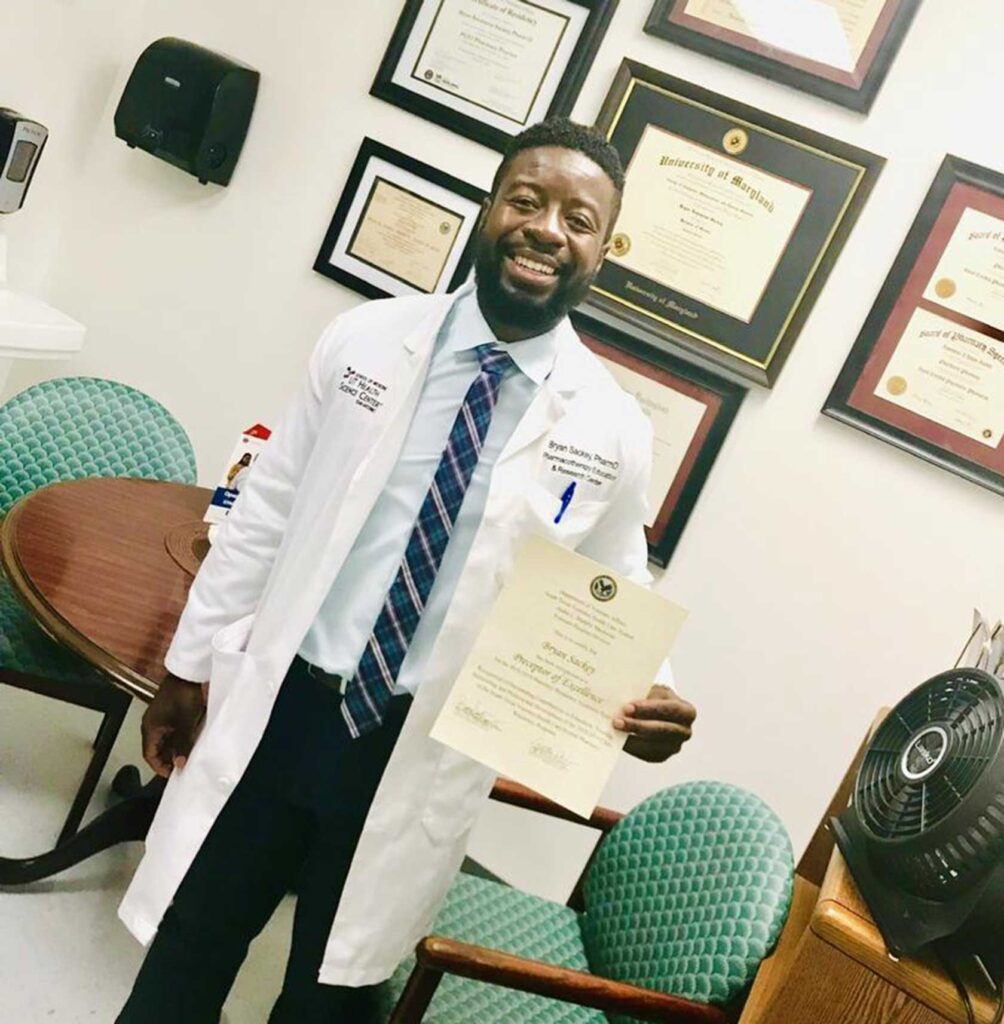
In the nation’s capital, Wards 7 and 8, where health inequities are widespread, a psychopharmacologist is piloting a mental health-coaching virtual platform called “Your Mind Our Business.” It flips the familiar phrase “mind your business” on its head to address a critical issue in Black and brown communities: mental health.
“When we think about the aspect of asking ‘how you are doing?’ You tend to say some form of ‘mind your business.’ This is playing on that whole term and saying, well, your mind is my business.’ Your mind is all of our business,” said Dr. Bryan Sackey, the founder and CEO of Your Mind Is Our Business.
Sackey also added that in areas where there is an unequal distribution of mental health services, for many, it’s hard to realize that they need help, a gap his service aims to fill.
“We sometimes don’t know what we don’t know, right? We don’t know that we are dealing with something, number one,” Sackey said. “Mental health is not one of those things where you see your leg broken and then you say, ‘Oh, okay, I need to go and get this fixed.’”
The virtual coaching service, which caters specifically to Black and brown communities, takes a more accessible approach, allowing individuals to seek help from the comfort of their own homes.
Sackey argues that the District, especially those from lower-income backgrounds, have access issues to health care as a whole. Reporting from the Washington Post shows half of D.C.’s Black residents lack access to care. Sackey said his platform will address this access issue, providing culturally competent services with providers who look like who they are serving.
“I’m not saying you have to go to a Black person if you’re Black,” Sackey said. “But I am saying that sometimes having someone who looks like you can help you enter into a space and feel more comfortable, and you can navigate from there.”
The Howard University-trained doctor recently relocated back home to the District from Houston, Texas, to help fill gaps in mental health.
“D.C. deserves so much, right? We’ve been through so many phases in D.C., and sometimes the core community gets lost,” he told The Informer.
He explained he wants to partner with local organizations, secure grants and form partnerships to start seeing change in D.C., which was once called “Chocolate City.”
From 2000 through 2013, aggressive gentrification displaced Black and brown residents in the District, according to a 2019 study by the National Community Reinvestment Coalition titled “Shifting Neighborhood Gentrification Cultural Displacement in American Cities.” The study also shows that pushing out these communities has, among other things, prevented them from benefiting from the availability of services that come with increased investment.
When it comes to mental health investment in the Black and brown community, Sackey emphasized he serves with authenticity and puts forth an image that is relatable.
“I always want to be authentic in how I present myself. I am just like you, a Black man in America trying to navigate this world. So I don’t put myself on some sort of pedestal or present [myself] in a way that I’m not accessible,” Sackey said, referencing how he shows up when providing mental health coaching services.
He wears a doctor-like white coat; underneath, he wears less formal attire, often wearing a fitted graphic shirt with an inspirational or contemplative message on it, sweatpants and colorful tennis shoes with a chain around his neck.
While he is aiding in tackling mental health inequalities in D.C. by dropping formalities in his relaxed clothing, he uses his lived experience of mental health challenges to help connect with his clients.
“I also try to be vulnerable and describe that within my life, regardless of what I do as a profession, I’m also a human being, and I deal with anxiety and depression in various ways [and in] various forms,” he noted.
A 2022 report from the World Health Organization (WHO) on mental health titled, “World Mental Health Report, Transforming Mental Health for All,” reveals that people with lived experience can be powerful advocates for people-centered and recovery-oriented mental health care, among other things.
“Everything around my life had some level of mental health impact, right? From my family, community, and so forth, I’ve seen, unfortunately, people who have died of suicide around me and so it was only a matter of time [before] God bestowed upon me like ‘this is your mission,’” he said.
Ashley Dixon, a registered nurse and client of Sackey, also believes this is his assignment. She praised Sackey for his coaching services, saying when she met him, she was at a “very low place” in her life.
“He helped me love myself — and accept other things that maybe were fractured in my life,” Dixon said. “He literally saved my life. I don’t know where I would be without him, and I can’t imagine my life without him. He will always be my coach for the rest of my life.”
The post, “Pharmacist pilots mental health virtual platform to address disparities,” appeared first on The Washington Informer.






